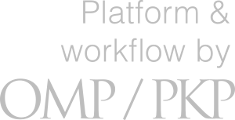
Driving and Embracing Change: Learning and Teaching Languages and Communication in Higher Education
Avainsanat:
korkeakouluopetus, korkea-asteen koulutus, muutos, monikielisyys, oppiminen, kieli ja kielet, yliopistot, opiskelijat, kulttuurienvälinen viestintä, englannin kieliTiivistelmä
When considering the title of this book, we, as its editors, had to reflect on the notion of change. Change is constant and inevitable, but fundamental changes do not happen overnight. Such changes result from actions and measures that address deep, complex and interrelated systemic issues, and thus require a shift in mindset. Fifty years ago, Gregory Bateson (1972/2000), an early advocate for ecological thinking, warned that solving the challenges facing society requires a re-examination of the ideas that have dominated thought since the industrial revolution. For Bateson, ecological thinking meant more than adding an environmental perspective and implied the need to revisit the core values and principles that form the basis of societies. Similarly, in the field of education, as Selby (2000) has argued, ecological thinking involves a shift to a more holistic worldview and an awareness of the interconnections and interdependencies of power issues influencing culture, development, environmental and social justice, equity, health, and peace, as well as the interplay between our outer and inner worlds and between different disciplinary epistemologies. These ideas have special significance in the dynamic landscape of contemporary higher education, which faces complex challenges and often unforeseen and/or unpredictable changes and events, such as shifts in government policy or the COVID-19 pandemic. The constantly evolving changes necessitate strategic, future-oriented planning and decision-making in addressing the most critical questions relevant to universities today: the provision of education that is accessible and equitable to all and that meets the changing needs of economies and societies; internationalisation and the growing linguistic and cultural diversity at universities alongside the increasing dominance of English in academia; financial sustainability and the increasing competition for funding; technological advancements; and the well-being of both students and staff. These questions are linked to larger social, economic, geopolitical, technological, ideological, and environmental changes, which directly or indirectly influence higher education: intensifying global migration, deepening social inequalities, escalating armed and cyber conflicts and threats, increasing political/ideological polarisation, the proliferation of misinformation and disinformation that diminishes trust in science, ethical issues surrounding AI, and the impending environmental crisis. On a more practical level, interest and investment in learning languages other than English is diminishing. These challenges are relevant in the Finnish higher education context, too, and they require flexibility and continuous adjustments not only in institutional strategies and frameworks but also in mindsets, pedagogical practices, and working cultures.
Luvut
-
Introduction
-
Framework for multilingual and intercultural communication competence
-
Exploring university students’ goals for the development of multilingual and intercultural communication competence
-
The pedagogical value of translation
-
Peer feedback in teacher teams
-
University students’ perceptions of the effectiveness of a course in communication confidence
-
Learner beliefs of Japanese exchange students at a Finnish university
-
Student perceptions of teaching presence in an online academic reading module
-
Expanding the conceptualisation of writing
-
First-year university students’ perceptions of themselves as writers of academic texts

Tiedostolataukset
Julkaistu
Sarja
Verkkokirjan ISSN
Lisenssi

Tämä työ on lisensoitu Creative Commons Nimeä-EiKaupallinen 4.0 Kansainvälinen Julkinen -lisenssillä.






